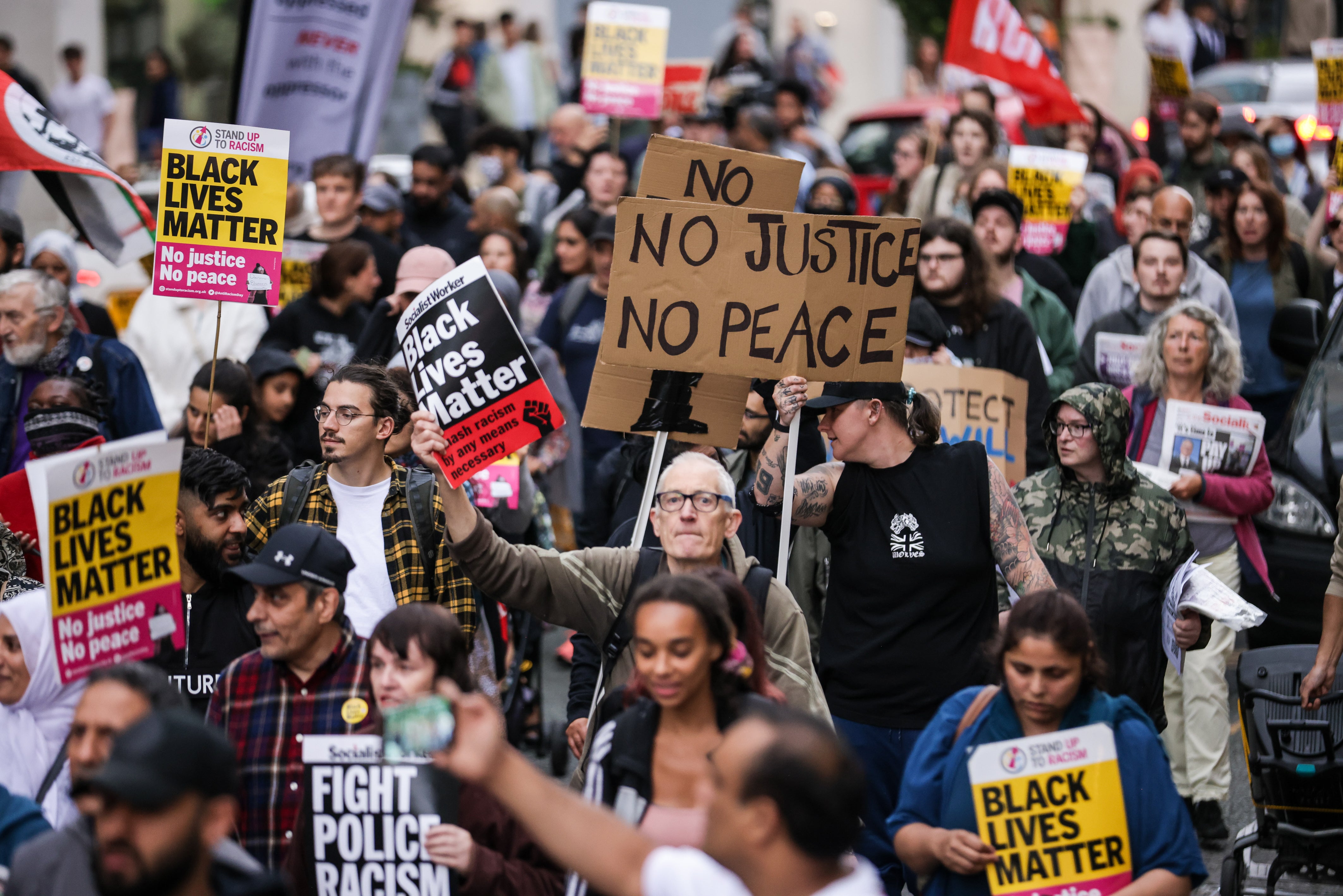How the police can restore trust after the shocking violence at Manchester airport
Following the release of footage which reportedly shows an officer kicking a man in the head, former chief crown prosecutor Nazir Afzal explains how we can hold law enforcement accountable when it goes too far


Yesterday, shocking footage emerged which seemed to show a violent interaction between armed police and people of south Asian heritage at Manchester airport. We don’t yet have all the recorded material, which will doubtless include CCTV and body cam footage.
What we do have are two videos: one which appears to show an officer using pepper spray on a man filming their interaction, and another which seems to show a man prone on the ground with his hands behind his back being tasered and kicked in the head by police.
Greater Manchester Police issued a press statement pointing to an altercation that left one female officer with an apparent broken nose, and an updated statement with more detail of the events it says led to what took place in the video. It added that it has self-referred to the Independent Office for Police Conduct (IOPC), which investigates complaints against police. The force later released a third statement saying that an officer had been suspended from all duties.
Everything anybody says has to be qualified at this time but it’s fair to say that the response we see on the videos appears wholly disproportionate to the threat being posed. It’s hard to justify the kicking of a man in the head in any circumstances – especially true when they are lying face down on the ground immobilised. Similarly, it is hard to explain pepper-spraying a man who does not appear to be engaging in any violent conduct.
When these videos surfaced, my phone blew up with messages from angry community members. I spent much of last night advising them they should “trust the process” and that the matter will be properly and expeditiously investigated. I understand confidence in both policing and the complaints process is low – but what else do we have?
These things do not happen in a vacuum. Reports of racism, misogyny, homophobia, Islamophobia and much more within policing have been published several times a year for several years. Police leaders have promised to root out “bad apples” and, yes, the number of officers currently being disciplined is extremely high. These things take time, they say.
What’s also troubling is that some have appeared to welcome the videos as a sign of a tougher approach to policing. They say this partly because they have seen, in their opinion, a “softer” approach to policing in London and Leeds recently. Strangely, these same critics are the first to attack the policing of largely white communities, such as far-right groups. “Two-tier policing” works both ways.
The answer is to focus on each incident separately. We live in a democracy, not a police state, and police officers are bound by the same laws as the rest of us. Sir Robert Peel said as much when UK policing was formalised in the 1820s: that the “police are the public and the public are the police”. We entrust police officers with power but it is a power that comes with limits. For example, they can use force to detain, but it must be “reasonable”.
There is today a perception that the police are more detached from their communities than they have ever been and that they are seen as instruments of the state rather than protectors of the public. This is particularly the case in high-crime areas and minority communities. I regularly hear members of the public telling me that “they don’t look like me, they don’t care, they just drive by in fast cars”. One community leader told me that pizza gets to his home before the police. That perception needs to change.
Confidence in policing is damaged by every poor interaction but improved by every correct one. When things go wrong, transparency and accountability are key. Let’s hope we get some soon.
Nazir Afzal OBE is a solicitor and former prosecutor within the Crown Prosecution Service



Join our commenting forum
Join thought-provoking conversations, follow other Independent readers and see their replies
Comments